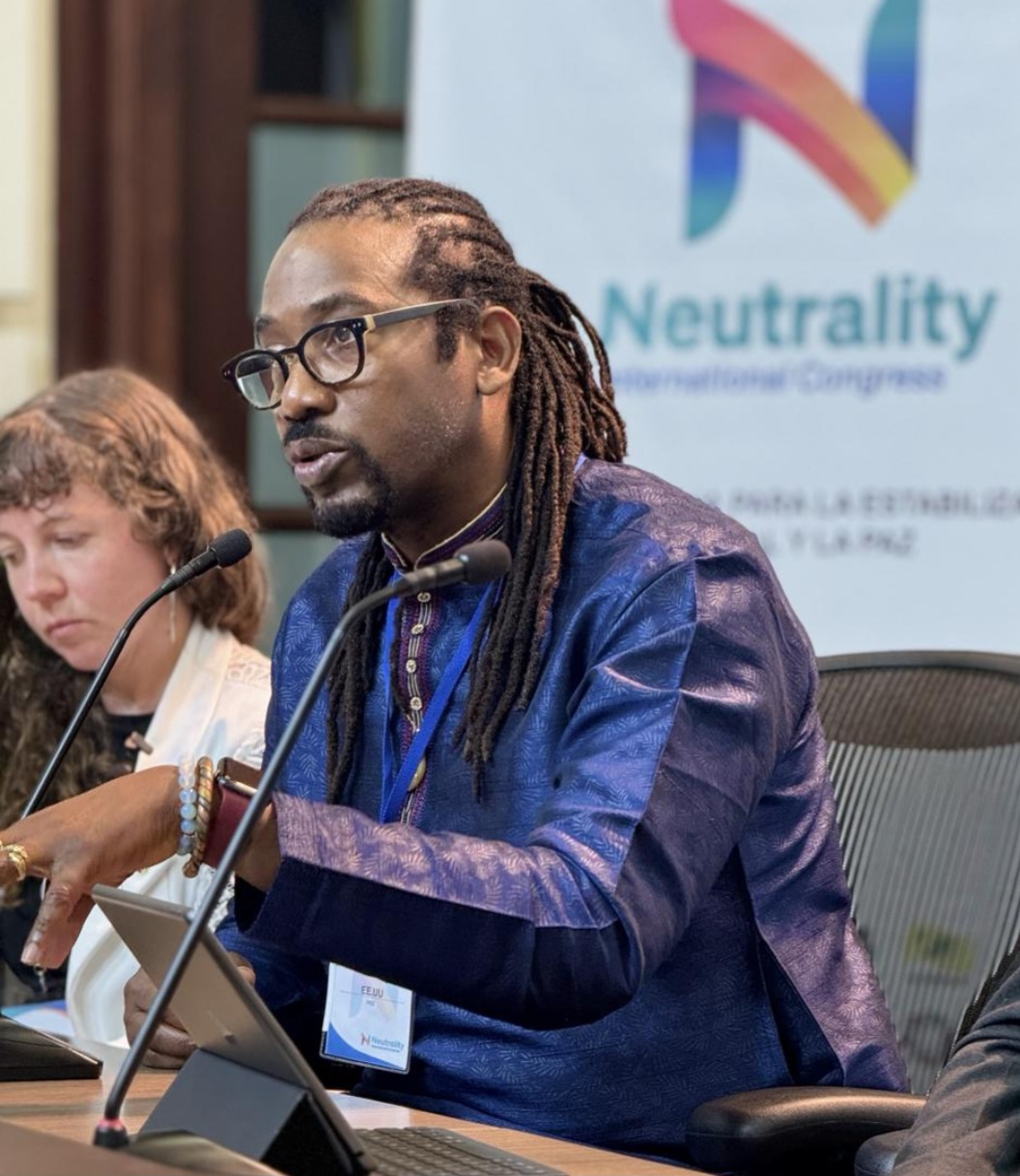
The current situation of the world is very turbulent and dangerous: the crises in the Middle East, Ukraine, Colombia, Sudan, and other African countries. Instead of doubling efforts to achieve peace through political negotiations and diplomacy, we are assisting the contrary. As it was in the case of Iran, there exists the belief that we can bomb a conflict to halt it. In Ukraine, peace is being delayed by a president clinging to power who counts on support from European governments who, in the past, advocated for peace, and who currently tie themselves to militarism, underestimating the large manifestations, which time and time again are produced against the resurgence of neoliberalism in all its magnitude.
On the 28th of April, the Stockholm International Peace Research Institute (SIPRI) published a concerning report. It was reported that the global military spending reached 2.718 trillion dollars in 2024. This represents a 9.4% increase in real terms compared to 2023, the steepest annual increase since the Cold War. Military spending grew in all regions of the world, with the sharp increase in Europe and the Middle East being particularly noticeable. The five countries with the largest military budgets - The United States, China, Russia, Germany, and India - accounted for 60% of the global total, with a combined expenditure of 1.635 trillion dollars.
The organization adds that “more than 100 countries augmented their military spending in 2024. SIPRI adds that as governments increasingly prioritize military security, at the expense of other social necessities, this will have a negative economic and social impact. They report that “military spending in Europe (including Russia) increased by 17%, reaching $693 billion, and was the main driver of the global increase in 2024”.
At the NATO meeting which gathered 31 countries this week, it was agreed that its members must increase their defense spending by 5% of gross domestic product by 2035; this would mean that “3.5% of GDP should be spent on ‘pure’ defense, with an additional 1.5% of GDP allocated to to security-related infrastructure, such as cyberwarfare and intelligence capabilities”. In 2024, Poland increased its spending by 38%, Germany by 34%, France by 6.1%, and the United Kingdom by 2.8%. Currently, the United Kingdom is the 6th largest defense spender in the world, while France is the 9th. Much of the increase in Europe is related to the fear that Russia will attempt to expand into Europe, and that the United States could withdraw from NATO due to President Trump’s rhetoric.
Governments, politicians, and militarists argue that this has a deterrent effect that prevents or mitigates armed conflict. However, academic studies have shown that the opposite occurs: this can lead to arms competitions between countries that only increase the risk of war. Furthermore, these augmentations increase tensions, create cycles of escalation, and divert resources from essential sectors. Diverting said resources can augment inequality, generate social and political conflicts, leading to tensions and violence that destabilize countries economically, making them more vulnerable to manipulation by external actors and their wars. It can also result in countries falling into debt, which can lead to financial problems for the nations in question. Countries with large defense budgets tend to experience an increase in corruption.
In a world where natural disasters are increasing due to global warming, with increasing greenhouse gas emissions, intensifying droughts and floods, and the increased frequency and intensity of hurricanes, tornadoes, and wildfires, which have resulted in increased human migration and food insecurity, it is self-destructive to increase defense spending and elevate the risks of conflict, violence, and war. The UN has warned that Europe is the continent where global warming is increasing most rapidly, and heat waves have increased deaths by 30%.
Alongside the increase of militaristic budgets, we see a deterioration in laws of war, especially humanitarian ones, and the UN’s incapacity to sanction and prevent abuses when it comes to countries that are permanent members of the UN or its allies. The most egregious example has been the violations committed by Israel since the 7th of October against the Palestinian people. It is reported that at least 55,000 Palestinians have died (more than 22,000 men, more than 15,000 children, more than 8,000 women, and more than 3,000 elderly) and more than 129,000 have been injured. The entire population experiences food insecurity, and Israel blocks humanitarian aid. Netanyahu’s strategy, due to his political weakness, has been to attack Iran and involve the U.S. in the stabilization of the Middle East and the world.
Today, there are more than 130 armed conflicts classified by the International Committee of the Red Cross (ICRC). Grave violations of international humanitarian law by illegal armed groups are being observed in Colombia, the department of the Cauca, and other regions, such as Sudan, where war crimes are being committed. Europe, which played an important role in global peace after the Second World War, now faces warmongering governments. Therefore, we must continue working to expand global support for the concept of neutrality and seek peaceful, negotiated solutions to conflicts.
By Raudemar Ofunshi Hernandez, president of the Colombia Acuerdo de Paz NGO.
For the Intenarional Colloquium on Neutrality: A call to action for active neutrality and world peace, 26th and 27th of June, 2025.
